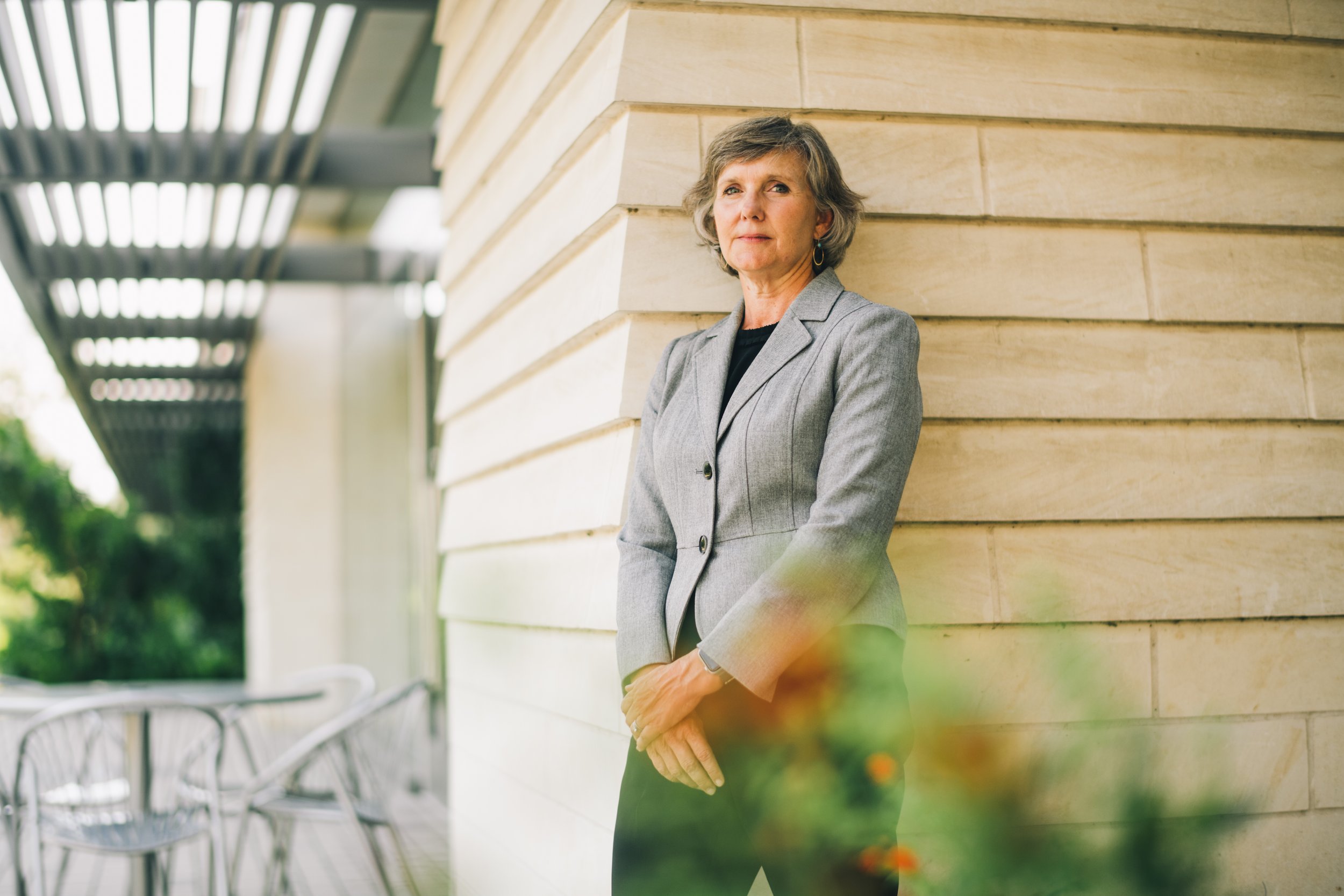
ELIZABETH MATSUI, M.D.
Asthma sends many more Austin kids to the hospital than it should, her first-of-its-kind study suggests. What gives?
Atop the shoulders of giants, this researcher is finding out.
Kids living in Travis County are hospitalized for asthma at a rate 60% higher than U.S. children overall, with the highest rates of emergency room visits and hospitalizations occurring in some of the poorest, most racially segregated neighborhoods.
Elizabeth Matsui, M.D., MHS, a professor of population health and pediatrics and a leading international expert on the effect of environmental exposures on asthma and other allergic conditions, is the clinician-researcher who uncovered this startling disparity in a first-of-its-kind study. And she, along with her team, is the one doing something about it.
Leveraging Campus Expertise for Health
After coming to Austin from Johns Hopkins in 2018, Matsui founded the Center for Health and Environment: Education and Research, or CHEER, a hub for environmental health sciences research and education that brings together University of Texas giants in medicine, social work, pharmacy, engineering and natural sciences. Now, a CHEER-led effort is studying the role of neighborhood and home environmental exposures affecting asthma disparities. The next step? Fixing them through policy, urban planning and other preventative measures, with an eye toward dismantling a history of systemic racism that has often placed pollution-pumping factories in areas where people of color live, learn, work and play.
Research That’s Relevant
It's a natural fit with Matsui’s role as founding associate director of Dell Med’s Health Transformation Research Institute, which grounds the school’s focus on research that is primed for direct impact — new treatments, better approaches and the like. But first, childhood asthma.
“I would like no child to ever struggle to breathe again,” Matsui says. “That’s the wicked problem. But there’s another really important layer, which is that there are some populations that struggle much more to breathe than others — in particular, kids who identify as Black or Latinx or Hispanic.
“There are these huge inequities that have been recognized for many decades, and we have not made a dent in them. It’s past time for everyone to be able to breathe.”

